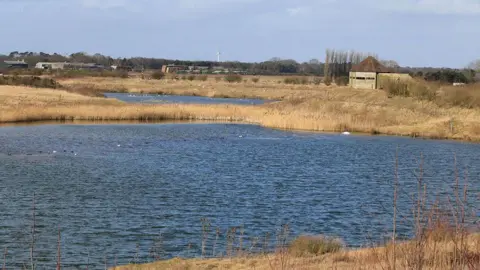Bird flu outbreak affects swans at nature reserve
 Getty Images
Getty ImagesBird flu has been reported at an East Yorkshire nature reserve.
Yorkshire Wildlife Trust said the outbreak was affecting mute swans at the North Cave Wetlands centre near Hull.
It added it was "closely monitoring the situation with support from Defra".
The charity is not closing the reserve, but asking visitors to report sick or dead birds.
Reserve manager Tony Martin said: "Sadly, avian flu is a disease that is spread between wild birds and aquatic birds like gulls, ducks and geese are considered most at risk.
"We can't stop this happening, but we can help our wild birds to be healthy and thrive, to withstand disease outbreaks like this.
"They already face pressures from habitat loss, pollution and a decline in insects and other food sources, and nature reserves remain our best line of defence for their survival."
The trust is asking visitors to keep to paths and not to touch sick or dead animals.
Restrictions were brought in on Wednesday after an outbreak of bird flu was confirmed at a poultry farm near Market Weighton
A 3km (nearly two miles) protection zone and a 10km (six miles) surveillance zone cordon around the site has been put in place.
The Department for Environment, Food and Rural Affairs said all the birds at the East Yorkshire farm would be humanely culled.
 Pauline E / Geograph
Pauline E / GeographThey are the latest outbreaks in the county of the highly pathogenic avian influenza (HPAI) H5N1 virus.
Since December, all poultry and other captive birds in affected parts of England have had to be kept indoors to prevent the spread of bird flu.
The virus spreads through birds' droppings and saliva, or through contaminated feed and water.
Scientists say the risk to humans is low at present.
Listen to highlights from Hull and East Yorkshire on BBC Sounds, watch the latest episode of Look North or tell us about a story you think we should be covering here.
